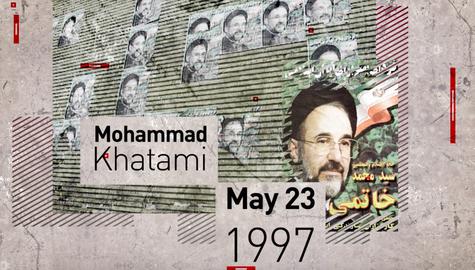Hadi loves cinema, and being stuck in Tehran’s Evin Prison has not ended his infatuation. He continues to follow the movie world and has even taken a complete script-writing course behind bars.
Were the classes held in secret? “No,” he says. “The loudspeakers of Evin’s political ward have even announced the classes a few times. Those interested in film criticism or script writing can register for the classes. Interest has been very high, especially when filmmakers or actors like Ramin Parchami have come to visit the ward.”
Another inmate, Reza, is not a die-hard cineaste. He just got involved in film criticism to escape the monotony of prison. But most of his classmates, he says, are pretty intense. “They gather together and argue so seriously — about the plot of an unremarkable movie, or the locations, or handheld cinematography, or the shots, or the plot, or the script — that you would imagine they had no other problem in the world except cinema.”
Hadi says that in 2010 and 2011, he did some of his best learning about cinema in prison. “Not many inmates attended cultural classes like this, but the quality of the discussions we had rivaled academic classes. There were people in our group who had written for film magazines. Sometimes sociology professors talked about the conflict between tradition and modernism in cinema. Others who were engaged in cultural activities joined in the discussions.”
The classes gave Hadi an idea. “Every week, I wrote down what went on in the classes,” he says. “For example, what movies were reviewed and what the participants said. There were those who could not or would not participate, but still liked to hear about the discussions. For example, my friend at the so-called Workers’ Ward would have liked to attend, but he couldn’t because he had to work in the prison kitchen. First, I thought about writing him a summary of our discussions. But then, I decided to write a weekly summary report for all the inmates who could not attend the classes.”
No Censorship in Prison
Hadi chuckles and says, “Believe it or not, the quality of the critiques was better than ‘Seven’, the TV program about movies. You know why? Because there was no censorship and nobody was worried about ‘guidelines’ and ‘red lines.’ We dared to challenge everything including dominant social policies. This made it all the more interesting.”
Reza recalls an intense focus on all aspects of Iranian cinema. “They talked about movies by Iranian filmmakers like Bahram Beyzai, Asghar Farhadi, and Abbas Kiarostami,” he says. “They even talked about the acting of Mostafa Zamani. Two students from Tehran University’s School of Arts were among the inmates, and they challenged the movies over technical aspects, like scenery and lighting. We also had a music expert. I imagine that if they shut the doors to the prison and said that it was going to be an unreachable island forever, we would never run out of subjects.”
Among those who participated in film criticism classes, he says, were Saeed Madani, a sociologist who is also a movie consultant, Alireza Rajaeim a journalist, and Rahman Ghahremanpour, an expert on nuclear affairs.
In Iran, former political prisoners often compare prisons to universities. One notable former inmate to make the comparison was Faezeh Hashemi Rafsanjani, daughter of the former President Rafsanjani. In 2012, Courts sentenced her to six months for participating in protests over Iran’s disputed 2009 election. “Throughout these years,” she has written, “prisons have become a treasure trove of valuable, educated, well-read and informed people. Here is a university that cannot take shape outside the prison at any time or place.”
Hadi and Reza must know exactly what she means. And while their studies might be limited to cinema, they are part of a bigger picture: A society in which political prisoners must make a constant effort to create a better world behind bars.
visit the accountability section
In this section of Iran Wire, you can contact the officials and launch your campaign for various problems



























comments